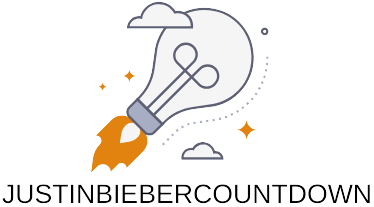Table of Contents
ToggleMotivation can sometimes feel like that elusive sock that disappears in the dryer—just when you think you’ve got it, poof! It’s gone. Yet, it’s the driving force behind every great achievement, from conquering a mountain to simply getting out of bed on a Monday morning. Understanding what fuels motivation can transform mundane tasks into extraordinary accomplishments.
Understanding Motivation
Motivation serves as a driving force behind action and decision-making. Recognizing its importance can transform mundane tasks into remarkable achievements.
Definition of Motivation
Motivation refers to the inner desires or external incentives that drive individuals to take action. It explains why certain behaviors manifest in response to specific stimuli. Features of motivation include energy, direction, and persistence. According to Deci and Ryan’s Self-Determination Theory, motivation influences the level of effort individuals invest toward goals. Engaging with these sources leads to a more profound understanding of what propels actions and choices.
Types of Motivation
Types of motivation can be categorized into intrinsic and extrinsic forms. Intrinsic motivation originates from within an individual, driven by personal satisfaction or enjoyment derived from an activity. It often manifests in hobbies or passions. Conversely, extrinsic motivation arises from external factors, such as rewards, recognition, or social acceptance. Both types interact in various scenarios, influencing performance and commitment to tasks. Recognizing these distinctions enhances comprehension of what ignites motivation in different contexts.
Examples of Motivation

Motivation can manifest in various settings, influencing behaviors and outcomes. Several personal and professional examples highlight different aspects of motivation.
Personal Examples
Personal motivation often stems from intrinsic desires. An athlete may train intensely for personal growth, pushing their limits to achieve better performance. Individuals pursuing hobbies engage in activities that bring them joy and fulfillment. A student studying diligently for an exam may seek knowledge and understanding, fostering intellectual curiosity. Each of these scenarios illustrates how intrinsic motivation drives individuals to reach personal milestones.
Professional Examples
In professional settings, extrinsic motivation plays a significant role. Employees may strive for promotions driven by recognition and financial rewards. A sales team member might work harder to meet targets, influenced by a potential bonus. Creative professionals often create exceptional work to gain praise and accolades. These examples showcase how external incentives can shape work behavior and foster a productive environment.
The Impact of Motivation
Motivation significantly influences individual actions and overall well-being. Its effects extend into various aspects of life, shaping how goals are pursued and achieved.
Benefits of Being Motivated
Enhanced productivity often results from strong motivation. Individuals who embrace motivation display higher levels of creativity, tackle challenges with enthusiasm, and exhibit improved problem-solving skills. Personal satisfaction frequently stems from systematically achieving goals, leading to greater self-esteem and confidence. Motivation can also inspire persistence, encouraging individuals to stay committed amid difficulties. Benefits appear across diverse areas, including academic performance, professional growth, and personal development. Engaged individuals actively seek opportunities, nurture relationships, and expand their skills. The ripple effects of motivation enhance not only the motivated individual but also positively impact their surroundings.
Consequences of Lack of Motivation
Lack of motivation often leads to stagnation. Individuals may experience decreased productivity, resulting in unfulfilled potential. Feelings of apathy commonly arise, affecting both personal and professional spheres. Poor academic performance and diminished work quality are typical outcomes, limiting career advancement opportunities. Additionally, lack of motivation can lead to negative emotional states, including anxiety and depression. Relationships might suffer, as disinterest in engaging with others prevails. Both individuals and organizations face challenges when motivation is absent.
Techniques to Cultivate Motivation
Cultivating motivation requires the application of effective techniques. Two key methods include goal setting and positive reinforcement.
Goal Setting
Setting clear and achievable goals remains essential in enhancing motivation. Specific targets provide direction and give context to efforts. Short-term goals lead to quick wins, boosting confidence as progress is made. Long-term goals support broader aspirations while enabling individuals to measure achievements. Establishing a timeline helps maintain focus. Regularly reviewing goals promotes accountability and adaptability, ensuring relevance as circumstances change. Ultimately, a well-defined framework for achievement fuels motivation.
Positive Reinforcement
Implementing positive reinforcement encourages sustained motivation. Recognizing and rewarding achievements—big or small—reinforces desirable behaviors. Celebrating milestones fosters a sense of accomplishment, encouraging continued effort. Intrinsic rewards, such as pride in completing a task, also play a significant role. External rewards, including praise or tangible incentives, create additional drive. Consistent acknowledgment strengthens the motivation to pursue further goals, establishing a cycle of success and engagement.
Motivation acts as a catalyst for action and achievement. By understanding its dual nature—intrinsic and extrinsic—individuals can harness their unique drivers to elevate their pursuits. Whether it’s the joy of personal growth or the allure of external rewards, recognizing these motivations can lead to significant transformations in everyday life.
Implementing strategies like goal setting and positive reinforcement can further enhance motivation. Celebrating small wins fosters a sense of accomplishment and fuels the desire to continue striving. Ultimately, a motivated mindset not only boosts personal fulfillment but also positively impacts those around them, creating a ripple effect of inspiration and success.







